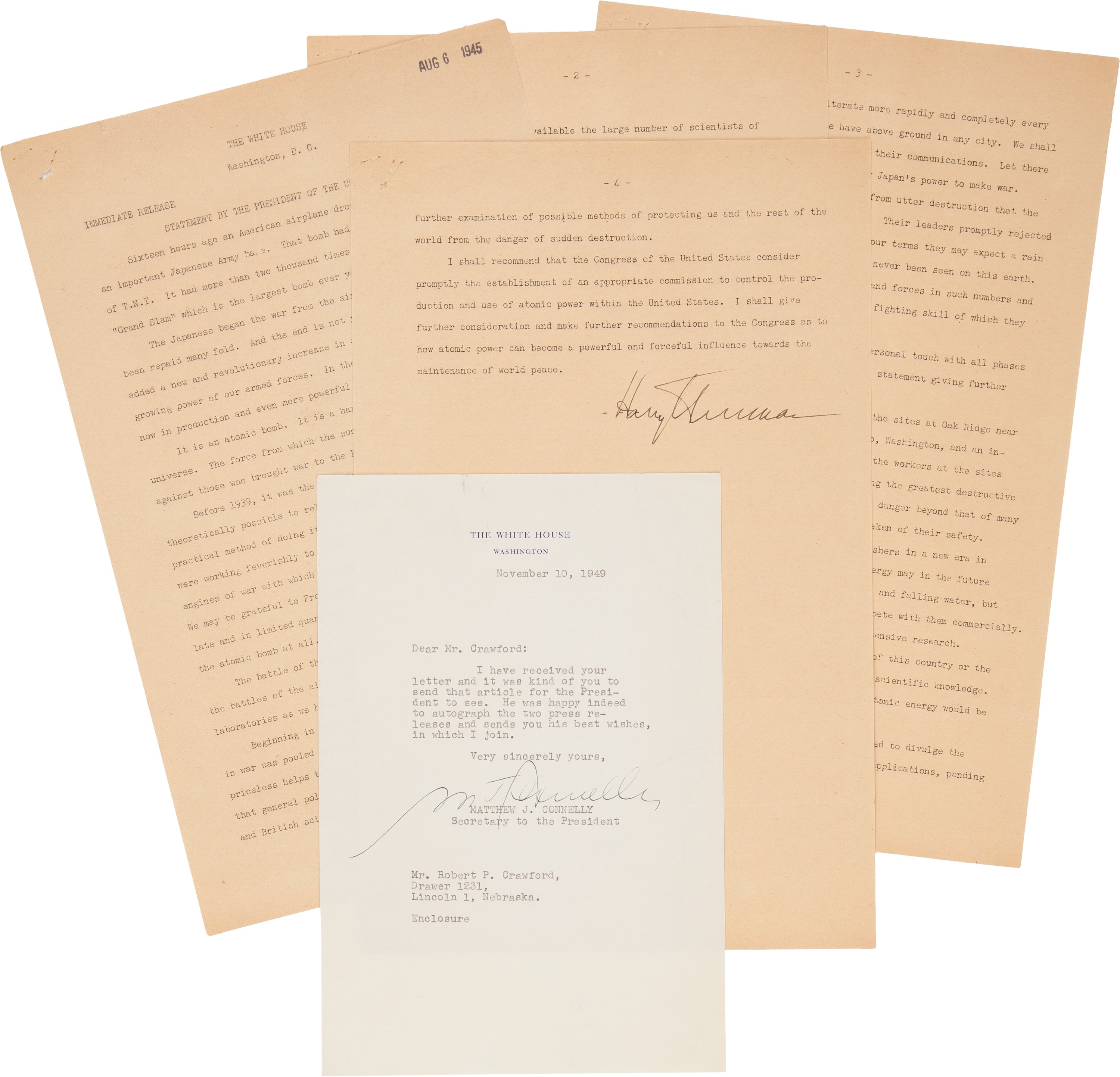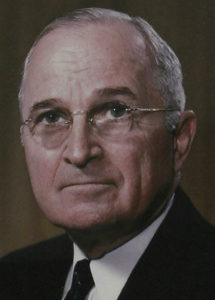
By Jim O’Neal
In February 1945, Franklin Delano Roosevelt traveled to Yalta in southeastern Russia to discuss plans for peace with Winston Churchill and Joseph Stalin. He reported to Congress that plans had been arranged for an organization meeting of the United Nations on April 25, 1945. He said, “There, we all hope, and confidently expect, to execute a definite charter of organization under which the peace of the world will be preserved and the forces of aggression permanently outlawed.”
Upon his return, he looked tired and older than his 63 years. Late in March, he went to Warm Springs, Ga., for an overdue rest. On April 12, 1945, he was working at his desk as an artist painted his portrait when he suddenly complained of “a terrible headache.” A few hours later, at 4:45 p.m., he died of a cerebral hemorrhage. The last words he had written were “The only limit to our realization of tomorrow will be our doubts of today. Let us move forward with strong and active faith.”

His successor, the first president to take office in the midst of a war, Harry S. Truman, said he felt “like the moon, the stars and all the planets had fallen on me.” The nation and world wondered if he was capable of taking Roosevelt’s place. His background and even his appearance added to the nervous uncertainty. He was the first president in 50 years without a college education. He spoke the language of a Missouri dirt farmer and World War I artilleryman – both of which he had been. Instead of talking like a statesman, he looked like a bank clerk or haberdasher – both of which he had been. And worst of all, everyone knew that for more than 20 years he had been a lieutenant of Tom Pendergast, one of the most corrupt political bosses in the country.
What most people didn’t know was that he was scrupulously honest, knew his own mind and was one of the most knowledgeable students of history ever to enter the White House. Importantly, he understood the powers of the president, and knew why some men had been strong chief executives and others had been weak leaders.
When he learned about the atomic bomb, there was no soul-searching or handwringing debates. He ordered it dropped on Japan because he was sure it would save American lives and quickly end World War II. It did not bother him in the least that years later, intellectuals would question whether one man should have made such an awesome decision alone. He knew in his heart that he was right … period.
Two of his well-known sayings capture the essence of Give’m Hell Harry Truman: The Buck Stops Here (a sign on his desk) and my favorite … If you can’t stand the heat, stay the hell out of the kitchen!
Leaders get paid to make tough decisions.
 Intelligent Collector blogger JIM O’NEAL is an avid collector and history buff. He is President and CEO of Frito-Lay International [retired] and earlier served as Chairman and CEO of PepsiCo Restaurants International [KFC Pizza Hut and Taco Bell].
Intelligent Collector blogger JIM O’NEAL is an avid collector and history buff. He is President and CEO of Frito-Lay International [retired] and earlier served as Chairman and CEO of PepsiCo Restaurants International [KFC Pizza Hut and Taco Bell].
